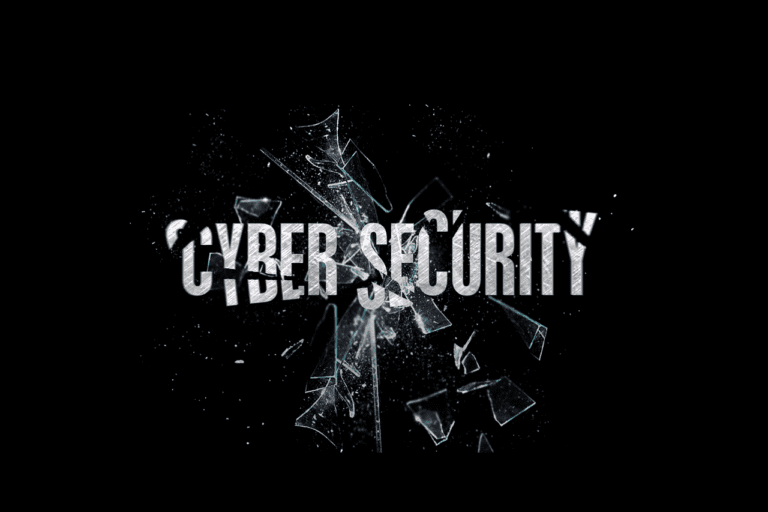What’s The Difference Between White Hat, Black Hat, And Gray Hat Hackers?
In the exciting world of cybersecurity, hackers play a pivotal role in protecting and exploiting vulnerabilities. However, not all hackers are created equal. Three distinct categories emerge – white hat, black hat, and gray hat hackers. White hat hackers, also known as ethical hackers, use their skills to identify and fix security flaws. On the other end of the spectrum, black hat hackers engage in malicious activities, exploiting weaknesses for personal gain. Somewhere in between lies the gray hat hackers, walking the fine line between legality and illegality. Each group possesses unique motivations, skill sets, and ethical considerations. Understanding the differences between these hackers can shed light on the evolving landscape of cybersecurity and the measures in place to safeguard our digital world.
White Hat Hackers
Definition
White hat hackers, also known as ethical hackers, are individuals who use their hacking skills and knowledge to identify vulnerabilities and potential threats in computer systems, networks, and software. Unlike their black hat counterparts, white hat hackers work with the permission and consent of the system owner to enhance security and protect against potential attacks. Their ultimate goal is to improve system defenses and safeguard sensitive information from malicious intruders.
Activities
White hat hackers primarily engage in activities that involve testing and auditing the security of computer systems and networks. They employ various techniques, such as penetration testing, vulnerability assessments, and risk analysis, to identify weaknesses in the system’s defenses. By simulating real-world attacks, they can uncover vulnerabilities that could potentially be exploited by black hat hackers.
These ethical hackers often collaborate with organizations to conduct authorized hacking attempts, known as “ethical hacking tests” or “white hat hacking tests,” which aim to evaluate the overall security posture of the system. During these tests, they employ their technical skills and knowledge to identify security vulnerabilities, report them to the system owner, and provide recommendations to mitigate risks.
Goals
The primary goal of white hat hackers is to strengthen the security of computer systems and networks by preventing potential cyber attacks. Through their expertise, they strive to ensure that organizations’ sensitive data remains secure and protects against unauthorized access or data breaches. By exposing vulnerabilities, they help organizations enhance their security measures, thereby reducing the risk of financial loss, reputational damage, and legal consequences.
White hat hackers are crucial in preventing and deterring criminal activities in the digital world. Their efforts help build trust among users and contribute to maintaining the integrity of online systems and platforms.
Ethics
Ethics play a fundamental role in the work of white hat hackers. Unlike black hat hackers who exploit vulnerabilities for personal gains or malicious purposes, white hat hackers follow strict ethical guidelines. They uphold professionalism, integrity, and legality in their activities. They strictly adhere to the rules and regulations set by the system owners and the law, ensuring that their actions are authorized and aimed at improving security.
White hat hackers conduct their activities with the utmost respect for the privacy and confidentiality of sensitive information. They prioritize obtaining necessary permissions and abide by legal and ethical boundaries. Their main focus is on assisting organizations, protecting innocent users from cyber threats, and working towards the collective benefit of society.
Examples
There are numerous prominent examples of white hat hackers who have made significant contributions to the field of cybersecurity. One such individual is Kevin Mitnick, who was once one of the most-wanted computer criminals but later transformed into an ethical hacker. Mitnick’s expertise in social engineering and computer hacking allowed him to access highly protected systems, highlighting their vulnerabilities. After serving his prison sentence, Mitnick became a security consultant and author, educating organizations and individuals about the importance of cybersecurity.
Another notable white hat hacker is Jeff Moss, known as “The Dark Tangent.” Moss created the infamous DEF CON hacking conference, which serves as a platform for both white hat and black hat hackers to exchange knowledge, discuss the latest security threats, and collaborate to enhance cybersecurity.
These individuals and many others have significantly influenced the field of cybersecurity by combining their hacking skills with ethical principles to protect digital systems.
Black Hat Hackers
Definition
Black hat hackers, often referred to as malicious hackers, are individuals who exploit computer systems and networks for personal gain, malicious intent, or criminal activities. Unlike white hat hackers, black hat hackers operate without authorization or consent. They bypass security measures, steal sensitive information, disrupt services, or compromise systems with the intention of causing harm, financial gain, or other nefarious objectives.
Activities
Black hat hackers engage in a wide range of illicit activities aimed at compromising the security and integrity of computer systems and networks. Some of the common malicious activities performed by black hat hackers include unauthorized access, data theft, system infiltration, denial of service attacks, and spreading malware or viruses.
These hackers often exploit vulnerabilities in software, steal personal information, engage in identity theft, or use compromised systems as botnets to launch larger-scale attacks. Their activities can result in significant financial losses, reputational damage, and compromise the privacy of individuals and organizations alike.
Goals
The primary goals of black hat hackers revolve around personal gain, financial profit, or causing harm to individuals, organizations, or society at large. Their motivations may encompass various criminal activities, such as stealing sensitive information, conducting ransomware attacks, engaging in fraud, or illegally accessing systems to disrupt services.
Black hat hackers may also engage in activities motivated by ideological or political reasons, targeting individuals or organizations they perceive as adversaries. Their objectives can range from spreading propaganda or misinformation to sabotaging critical infrastructure systems to advance their agendas.
Ethics
Black hat hackers operate outside the boundaries of ethical standards and the law. Their activities are inherently unethical and illegal, as they consciously violate the privacy, security, and rights of individuals and organizations without consent. The pursuit of personal gain or causing harm is typically at the forefront of their actions, with little regard for the consequences imposed on innocent individuals and society as a whole.
Unlike white hat hackers, black hat hackers do not adhere to any ethical guidelines or professional standards. They exploit vulnerabilities for personal benefit, endangering individuals’ privacy, committing fraud, or causing severe disruptions to businesses and infrastructure systems.
Examples
Numerous high-profile examples of black hat hackers have made headlines over the years due to their malicious activities. One notorious case involves Gary McKinnon, a British hacker who infiltrated several U.S. military and NASA systems in search of evidence of UFOs. McKinnon’s unauthorized activities disrupted critical systems and caused significant financial losses, leading to his extradition case.
Other black hat hackers, such as Adrian Lamo and Albert Gonzalez, indulged in large-scale data breaches and identity theft, compromising the personal information of thousands of individuals. These individuals exploited vulnerabilities in computer systems and networks, subsequently selling the stolen data on the black market for financial gain.
The actions of black hat hackers pose a significant threat to individuals, organizations, and even governments. Their illegal and malicious activities highlight the importance of cybersecurity measures and the need for ongoing efforts to prevent, detect, and deter such criminal behavior.
Gray Hat Hackers
Definition
Gray hat hackers, situated between the ethical white hat hackers and the malicious black hat hackers, are individuals who engage in hacking activities without explicit authorization but without malicious intent. Unlike black hat hackers, they do not exploit vulnerabilities for personal gain or harm. Instead, gray hat hackers expose security flaws in systems and networks, often bringing them to the attention of the system owners.
Activities
Gray hat hackers operate in a moral gray area by discovering and exploiting vulnerabilities in computer systems or networks without obtaining official permission. However, their intentions differ from those of black hat hackers, as they typically do not use their findings for personal gain or malicious activities. Instead, they aim to highlight security weaknesses and prompt system owners to address them promptly.
These hackers often notify organizations or individuals about the vulnerabilities they find, giving them a chance to fix the issues before public exposure or exploitation by malicious hackers. While their activities are not entirely legal, they have good intentions in mind and attempt to bridge the gap between unauthorized hacking and responsible disclosure.
Goals
The goals of gray hat hackers are centered around raising awareness and improving the overall security of computer systems and networks. They strive to ensure that potential vulnerabilities and weaknesses are properly addressed to protect sensitive data and prevent unauthorized access.
Unlike white hat hackers, gray hat hackers typically do not receive explicit consent to perform ethical hacking tests. However, their motivation lies in the greater good of improving cybersecurity, as they believe that identifying vulnerabilities and encouraging organizations to take appropriate measures is essential in the ever-evolving landscape of cyber threats.
Ethics
Gray hat hackers operate in a moral uncertainty, as their activities are not entirely legal but driven by good intentions. They reveal vulnerabilities without explicit consent but aim to contribute to the enhancement of system security. Their actions can be seen as a form of civil disobedience within the realm of cyberspace.
While their intentions are generally considered noble, gray hat hackers still operate outside the ethical boundaries established by white hat hackers. They may expose organizations to potential risks without their knowledge, although their objective is to motivate system owners to proactively address vulnerabilities.
Examples
One notable example of a gray hat hacker is Chris Roberts, who gained recognition for highlighting vulnerabilities in airline systems. Roberts identified weaknesses that could potentially compromise flight safety and notified the aviation industry to address the issues promptly. While Roberts faced legal consequences for his unauthorized activities, his intentions were focused on protecting passengers and improving aviation cybersecurity.
The actions of gray hat hackers often present ethical dilemmas, as their intentions are aligned with improving security but their methods fall within legal grey areas. Their activities underscore the importance of responsible disclosure and the need for organizations to address vulnerabilities promptly to prevent exploitation by malicious individuals.
Techniques and Tools Used
Exploits
Exploits are a critical part of a hacker’s toolkit, allowing them to take advantage of vulnerabilities in computer systems, networks, or software. Exploits are essentially pieces of code or techniques that target specific weaknesses or security flaws to gain unauthorized access or perform malicious actions.
Hackers leverage exploits to infiltrate systems, bypass security measures, or execute arbitrary code. Common types of exploits include buffer overflows, remote code execution, SQL injection, and cross-site scripting.
Effective security measures and regular software updates are essential in mitigating the risks associated with exploits. Regular patching and vulnerability assessments can help identify and address weaknesses before they can be exploited.
Malware
Malware refers to any malicious software designed to disrupt, damage, or gain unauthorized access to computer systems or networks. It is a powerful weapon in the arsenal of black hat hackers, enabling them to compromise systems, steal sensitive information, or control infected devices remotely.
Malware includes various types, such as viruses, worms, trojans, ransomware, and spyware. Hackers commonly distribute malware through email attachments, malicious websites, or drive-by downloads.
Effective antivirus and anti-malware software is crucial in defending against malware attacks. Regular updates, system scans, and user education on safe browsing practices are essential in mitigating the risks associated with malware.
Social Engineering
Social engineering is a technique used by hackers to manipulate individuals into revealing sensitive information or performing actions that aid the attackers’ objectives. It exploits the human element of security, relying on psychological manipulation rather than technical vulnerabilities.
Common social engineering techniques include phishing, pretexting, baiting, and tailgating. Through these methods, hackers deceive individuals into disclosing passwords, login credentials, financial information, or downloading malicious software.
Awareness and education are essential in combating social engineering attacks. Individuals should be cautious when sharing sensitive information, respond critically to unexpected requests, and regularly update their knowledge of the latest social engineering techniques.
Brute Force Attacks
Brute force attacks involve systematically trying every possible combination of characters until the correct one is discovered. This method is typically employed to crack passwords or encryption keys and gain unauthorized access to systems or encrypted data.
Hackers may use specialized tools or scripts to automate the brute force process, rapidly testing multiple combinations without manual intervention. Brute force attacks can be time-consuming, but they can potentially be successful if weak or easily guessable passwords are used.
Mitigating the risks associated with brute force attacks requires strong passwords, multifactor authentication, and account lockouts after a certain number of failed login attempts. Regular password changes and the use of password managers also contribute to enhancing security.
Legal Aspects
Laws and Regulations
The legal landscape surrounding hacking, cybersecurity, and related activities varies across countries and jurisdictions. Governments and legislative bodies have enacted laws and regulations to address cybercrime, protect critical infrastructure, and safeguard individuals’ privacy.
Laws cover various aspects related to hacking, including unauthorized access to computer systems, data breaches, identity theft, and cyber fraud. Examples of prominent cybersecurity-related legislation include the United States’ Computer Fraud and Abuse Act (CFAA), the European Union’s General Data Protection Regulation (GDPR), and Australia’s Cybercrime Act.
Compliance with applicable laws is essential for organizations and individuals alike to ensure they are not engaged in illegal activities and to protect themselves from possible legal consequences.
Penalties and Consequences
The penalties and consequences for engaging in hacking or cybersecurity-related offenses can vary significantly depending on the nature and severity of the activities, the applicable laws, and the jurisdiction. Individuals convicted of cybercrimes may face imprisonment, fines, or both.
Penalties are often more severe for black hat hackers engaged in unauthorized malicious activities, while white hat hackers may face less severe consequences or even legal protection if their actions are sanctioned and authorized by the system owner.
The legal aspects surrounding hacking highlight the importance of ethical hacking and the necessity for organizations to engage in responsible disclosure programs. These programs provide a framework for individuals to report vulnerabilities without fear of legal repercussions, allowing organizations to address weaknesses and enhance security.
Careers in Ethical Hacking
Required Skills
A career in ethical hacking requires a diverse set of technical skills and knowledge. Individuals pursuing such a career must possess a deep understanding of computers, networks, operating systems, and cybersecurity principles. Some crucial skills include:
Knowledge of programming languages:
Proficiency in programming languages such as Python, C++, Java, or Ruby is essential for understanding and developing exploits, creating tools, and automating security tasks.
Networking fundamentals:
Understanding the basics of networking, including IP addressing, routing, protocols, and network architecture, is crucial for conducting successful security assessments and penetration testing.
Operating systems:
Proficiency in various operating systems, such as Windows, Linux, and macOS, is necessary to identify vulnerabilities and assess their impact on different systems.
Security tools and technologies:
Familiarity with security tools, such as vulnerability scanners, network analyzers, and penetration testing frameworks, is vital for efficiently assessing and securing computer systems and networks.
Analytical and problem-solving skills:
Ethical hackers must possess strong analytical and problem-solving abilities to identify and understand vulnerabilities, develop mitigation strategies, and devise creative solutions in response to emerging threats.
Certifications
Obtaining relevant certifications can further enhance an individual’s career prospects in ethical hacking. Certifications validate an individual’s knowledge and expertise, demonstrating their commitment to the field. Some prominent certifications for ethical hackers include:
Certified Ethical Hacker (CEH):
The CEH certification provided by the EC-Council is a globally recognized credential that validates individuals’ skills in identifying vulnerabilities and performing ethical hacking tests.
Offensive Security Certified Professional (OSCP):
The OSCP certification, offered by Offensive Security, focuses on hands-on penetration testing skills and is highly regarded in the industry.
Certified Information Systems Security Professional (CISSP):
The CISSP certification, granted by (ISC)², covers a wide range of cybersecurity domains and is suitable for professionals in various areas, including ethical hacking.
Obtaining certifications demonstrates a commitment to continuing education, professional growth, and adherence to industry best practices. They are highly valued by employers and can open doors to a rewarding career in ethical hacking.
Challenges Faced by Hackers
Security Measures
One of the primary challenges faced by ethical hackers is the continuous improvement of security measures. As organizations develop more sophisticated defenses and implement robust security controls, finding vulnerabilities can become increasingly challenging. Ethical hackers must constantly update their skills, stay updated with emerging threats, and develop new methodologies to navigate the evolving security landscape.
Additionally, ethical hackers often face the obstacle of standardized security configurations and security-conscious developers, who may unintentionally limit their ability to assess systems thoroughly. They must find creative ways to overcome these hurdles and identify vulnerabilities that could be exploited by malicious hackers.
Countermeasures
The realm of cybersecurity is a constant cat and mouse game, with hackers devising new techniques for exploiting vulnerabilities and defenders developing countermeasures to mitigate risks. Ethical hackers may encounter robust defenses and countermeasures that make it difficult to breach systems or networks. These countermeasures can include intrusion detection systems (IDS), firewalls, antivirus software, and encryption.
To overcome these countermeasures, ethical hackers must employ advanced methodologies, evade detection mechanisms, and adapt their approaches accordingly. The ability to think outside the box and apply innovative techniques is crucial in staying one step ahead of adversaries.
Emerging Technologies
The rapid advancement of technology brings forth new challenges for ethical hackers. As Internet of Things (IoT) devices, cloud computing, artificial intelligence (AI), and blockchain technology become more prevalent, ethical hackers must adapt their skills to evaluate the security implications of these emerging technologies.
The unique characteristics and potential vulnerabilities associated with these technologies require hackers to continuously learn, experiment, and stay updated with the latest trends. Understanding the intricacies of these technologies will enable ethical hackers to identify potential risks and guide organizations in deploying secure systems.
Impact on Society
Privacy Concerns
The activities of hackers, both ethical and malicious, have a profound impact on privacy in the digital era. The proliferation of connected devices, social media platforms, and online services has created a vast amount of personal data susceptible to unauthorized access. Hacking incidents can compromise individuals’ private information, including personal records, financial data, and communication.
Ethical hackers play a crucial role in mitigating privacy concerns by proactively identifying vulnerabilities and ensuring that appropriate security measures are in place. Their efforts contribute to a safer online environment, reinforcing the importance of protecting users’ privacy.
Cybersecurity Awareness
The activities of hackers, particularly black hat hackers engaged in malicious activities, generate significant awareness around the importance of cybersecurity. High-profile data breaches, ransomware attacks, and other cyber threats frequently make headlines, highlighting the potential risks faced by individuals, organizations, and society as a whole.
As a result, cybersecurity awareness has become a crucial aspect of daily life, with individuals and organizations investing in security measures, education, and training programs. Ethical hackers contribute to raising awareness by conducting security assessments, educating individuals about safe online practices, and advising organizations on implementing measures to protect against potential threats.
Role in Cyber Defense
Ethical hackers play a critical role in the field of cyber defense. Their efforts to identify vulnerabilities, develop mitigation strategies, and assist organizations in addressing security weaknesses greatly contribute to safeguarding critical infrastructure, protecting sensitive data, and defending against cyber threats.
By acting as a constant adversary, ethical hackers help organizations identify potential weaknesses before malicious actors can exploit them. Their findings and recommendations can lead to the development of robust security measures, ensuring a stronger defense against emerging cyber threats.
The Cat and Mouse Game
Constant Evolution
The world of hacking and cybersecurity is in a constant state of evolution, as hackers, defenders, and technology continue to advance. Hackers, whether ethical or malicious, adapt their techniques, exploit new vulnerabilities, and develop innovative attack vectors.
To keep up with this constant evolution, ethical hackers must continually update their skills, explore emerging technologies, and stay abreast of the latest hacking techniques. This ongoing learning process is crucial in ensuring their effectiveness in identifying and addressing vulnerabilities in an ever-changing landscape.
Ethical Dilemmas
Ethical hacking inherently involves navigating morally complex situations. Ethical hackers may face dilemmas that question their principles and challenge their role in the cybersecurity ecosystem. These dilemmas may arise when vulnerabilities discovered during an ethical hacking test are not promptly addressed by organizations, potentially leaving systems exposed to malicious actors.
In such instances, ethical hackers must make difficult decisions on whether to disclose their findings to the public, potentially endangering individuals’ security, or maintain confidentiality, hoping that organizations will eventually address the vulnerabilities. These ethical dilemmas require careful consideration of the potential consequences and a commitment to acting in the best interest of public safety.
Conclusion
White hat, black hat, and gray hat hackers operate within distinct ethical boundaries, with their actions shaping the cybersecurity landscape. White hat hackers play a critical role in helping organizations enhance their security, protect sensitive data, and maintain trust among users. Black hat hackers pose a significant threat through their malicious activities, creating financial losses, reputational damage, and compromising personal privacy. Gray hat hackers, operating in a moral gray area, aim to raise awareness and prompt system owners to address vulnerabilities responsibly.
Ethical hacking presents various challenges, including overcoming robust security measures, adapting to emerging technologies, and navigating ethical dilemmas. However, the impact of ethical hackers on society is profound, with their actions contributing to privacy protection, cybersecurity awareness, and the strengthening of cyber defenses.
As the cat and mouse game between hackers and defenders continues, the ever-evolving field of ethical hacking remains pivotal in safeguarding digital systems, protecting sensitive information, and ensuring a secure online environment for individuals, organizations, and society as a whole.








